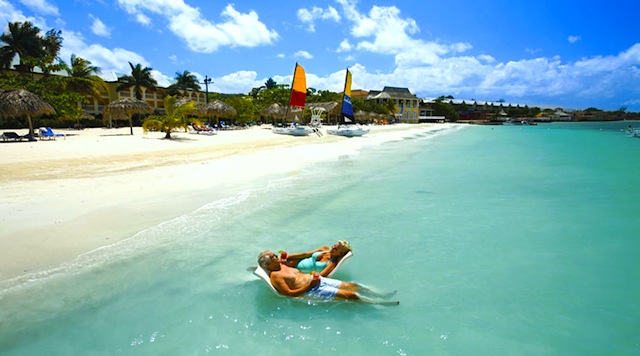
How Much Money Do You Need to Retire in Jamaica
Since its rocky transition to democracy in 1962, Jamaica has gone through many dramatic changes – not all of them positive. In addition to high crime rates and a troubled healthcare system, many educated Jamaicans, who came of age during or after independence, left their home country for better job opportunities in Canada, Europe and the United States – part of a “brain drain” that continues today.
Yet as the government ramps up efforts to encourage expatriates to return their native land, immigrating retirees are more likely to see the country as a sunny paradise where real estate is moderately priced and often cheaper than in many U.S. cities. Add to that the historic draws of lush vegetation, swoon-worthy beaches, tropical weather and a famously laid back lifestyle (after all, Jamaica is the birthplace of reggae). And despite a still-alarming crime rate (Jamaica has the same population, but twice the homicide rate, of Chicago), incidents have steadily diminished since 2010.
Though Jamaica doesn't rank at the top of Caribbean islands for luxurious retreats (see Find the Top Caribbean Islands For Retirement), don’t assume that it's is flat-out cheap. Parts of the island have been "discovered," and the cost of living can vary dramatically depending on your lifestyle. Here are a few essential categories to help you do a thorough cost analysis.
Housing and Utilities
Montego Bay is famous for its luxurious beachfront resorts and golf courses, luring honeymooning couples from all over the world. Would-be retirees are likely to experience sticker shock when they find that this resort town costs about as much living in two of the United States’ priciest cities: New York and Washington, D.C. Of course, for the price of a one- or two-bedroom apartment in an elegant part of Manhattan (say between $1 and $2.5 million), you can buy an entire house, complete with ocean view, in the swank Spring Farm neighborhood.
This is just one example of the “location, location” rule that applies in Jamaica, where an upscale enclave can be markedly more expensive than another area of the island nearby. In many cases, though, you’ll find the cost of housing, whether you rent an apartment or buy one, to be very affordable. A one-bedroom in the middle of one of the cities rents for an average $360 per month, while the purchase price for a centrally located 1,000-square-foot apartment averages less than $75,000, cheaper than garage space in some American cities.
Jamaica's capital, Kingston, is (not surprisingly) a little more expensive, averaging around $409 monthly for a rental, $148,000 for a purchase. If you’re in the market to buy, keep in mind that mortgage interest rates are higher than in the U.S., currently hovering around 9% to 10%.
Another area for sticker shock? Utilities. Most Jamaicans don’t have a dishwasher, washer or drier – not only due to the cost of importing such appliances to the island, but because of the expense of running them.
Food
As the prices of imports have doubled over the past decade, the Jamaican government declared the island to be in a “food crisis.” The response to this crisis has been a positive upswing in domestic agriculture and food production, from farms to gardens to chicken coops. By sticking to local eggs, cheese, meats and produce, you can shop very economically; you’ll find these items generally cheaper than they would be stateside. One exception is milk: Expect to pay around $8 per gallon.
Most imported goods remain very expensive. Except for restaurants attached to luxury resorts, you’ll find the price of dining out to be reasonable, though. A couple can treat themselves to a three-course meal for just over $40.
Transportation
While Jamaica has distinct European influences, when it comes to efficient and safe transportation, Europe it’s not. Most retirees find a car to be a necessity in order to avoid the crowded, unpredictable and often uncomfortable public transportation (don’t hope for air conditioning, unless you’re taking a tourist bus). While fares are appealingly cheap (and half-price for senior citizens, called pensioners in Jamaica), don’t expect vehicles to show up on schedule: Drivers, infamous for their erratic motor skills, tend to depart whenever the bus is full (read: jam-packed).
The Bottom Line
Expatriates who retire in Jamaica commonly report that it’s the cost of little things – or, in many cases, the lack thereof – that gets to be an issue. Even daily items such as toothpaste and shaving cream tend to be surprisingly expensive. Stock up when visiting the States.
Other problems are things they didn't foresee. Power shortages, for one – frequent and unforeseen cuts, which mean no water, electricity or internet for several days. Word to the wise: Invest in a back-up generator. It beats having to decamp to one of the local hotels. That – while pleasant – would really be a budget-buster.
http://www.sunfim.com/en/Investir-real-estate-jamaica-200.html

Comments
No comments to display for this post.